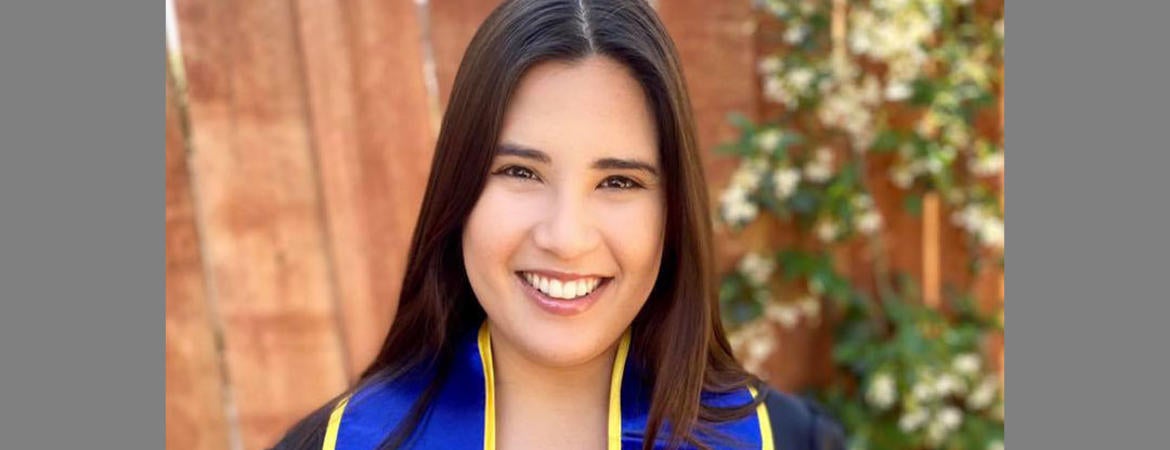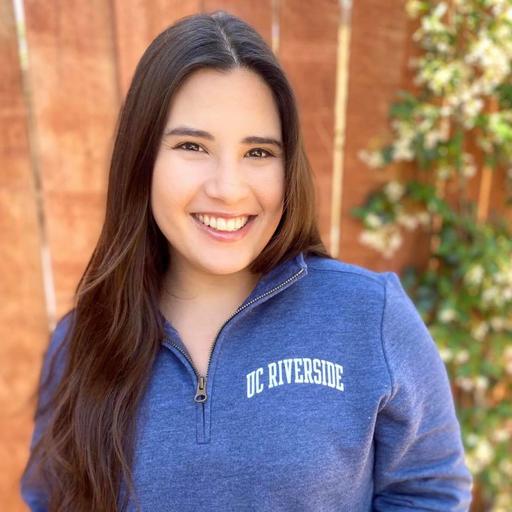
When Sarah Juarez told her high school guidance counselor that her goal was to attend graduate school, their response was, “We will see if you can even make it through community college because you are not college-ready.”
Not only did Sarah make it through community college, she earned two associate degrees, was accepted to nine different higher education institutions as a transfer student, and will earn her Master’s degree in Higher Education Administration from GSOE this June.
Her road to this point has been anything but smooth, and Sarah’s experience with her high school counselor wasn’t an isolated incident. After transferring from Chaffey, where she received support and mentorship, to a new institution to pursue her Bachelor’s in Psychology, she was discriminated against because of her ethnic and socio-economic background, and two professors told her that she couldn’t make it through graduate school.
“It was a very traumatizing experience, and the reason I decided to pursue a career in higher education. I wanted to keep students from having the same experience as I had, and I grew a passion and mission to help students achieve their academic goals,” she said.
Sarah changed her major from psychology to higher education, and was accepted into the Higher Education Administration and Policy graduate program at the Graduate School of Education at UCR, where she found a community of peers and professors who have inspired her to “dig deeper, think differently, challenge the current norms, and continue striving for greatness.”
“I was very nervous about attending UCR because of my undergraduate experience. However, GSOE has become a home away from home. Every professor I have had here has shown they genuinely care about their graduate students, and I have had my favorite classes here at GSOE,” she said.
Sarah is also GSOE’s inaugural Community Learning Coordinator for the Education, Society, and Human Development undergraduate major, which launched in 2018. Over the past year, she has helped build the infrastructure for the 40-hour community engaged learning requirement, creating partnerships with local non-profits, including Blu Educational Foundation, Cash for College, Growing Inland Achievement, Riverside Unified School District, Early Academy Outreach Program, Create Thirst Academy, and Riverside Arts Academy. She connects undergraduate students with experiential learning opportunities ranging from mentoring, tutoring, and working with local K-12 students on college-readiness programs.

“Students need to apply what they are learning in the classroom to the real world, especially in the field of education. Many of our students want to be teachers, counselors, mentors, principals, deans, or directors. The sooner they go out into the field and gain experience, the sooner they can commit to a solid plan in how to achieve their career goals,” she says.
She credits this role, and working closely with the GSOE undergraduate advising team, with expanding her experience and understanding of student success programs. It also allows her to be a champion for students.
“I didn’t have many friendly encounters after I transferred, and always preferred to do everything myself rather than asking. This position has allowed me to be a friendly face, and a supportive space for students, so they don’t ever have to experience what I experienced during my undergraduate years. In a way, I am fulfilling my passion for helping students achieve their academic goals.”
Now that she’s earned her Master’s degree, she plans to work towards becoming a director for a career or student services program, such as TRIO, Puente, or Extended Opportunity Programs and Services (EOPS), at a community college.
“I was a student who was thought to not be college-ready, and I didn’t expect to finish community college the way I did, with the amount of schools’ acceptance letters that I received. I was only able to achieve this through the support of the counselors, mentors, and professors who believed in me at my community college,” Sarah said. “They helped me see my fullest potential, and always believed that I would finish graduate school and come back to serve community college students. I hope to continue what they planted, to help students see their fullest potential, so they achieve their goals, just like I did.”